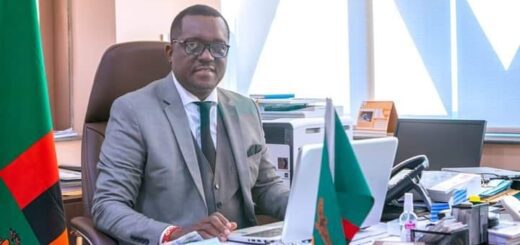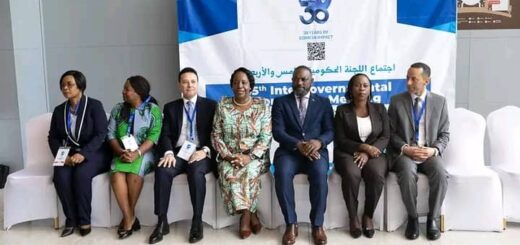Independence of Dependence: A Reflection on 60 Years of Zambian Sovereignty
As Zambia celebrates 60 years of political independence, the commemoration of our liberation from colonial rule remains a momentous occasion. The sacrifices of our forefathers, who fought with limited resources and education to secure our freedom, will always be celebrated.
They built the foundations of a newly independent Zambia, creating over 120 state enterprises that provided employment for thousands of Zambians. Yet, despite these strides in political self-determination, the critical question remains: how far have we truly come in liberating ourselves economically?
At the heart of Zambia’s political independence was the call for structural transformation across the country. However, while we broke free from colonial rule, the economic structures that underpinned the colonial regime have largely remained intact.
The colonizers, in relinquishing political control, left behind a system designed to perpetuate their economic dominance. As they withdrew, they no longer bore the responsibility for building infrastructure, maintaining industries, or providing social services, but they maintained their grip on our resources.
Today, in the guise of foreign direct investment (FDI), these former colonizers—and new global players—continue to exploit our resources with little accountability or oversight.
This situation has trapped Zambia in a state of economic dependence. While we are politically free, our economic sovereignty is elusive. For decades, we have remained shackled to the same global financial systems created by the West, systems that ensure their continued dominance.
Our country, which is rich in minerals such as copper, has no power over the global pricing of these commodities. Instead, the prices are set in London, by those who neither mine the minerals nor contribute to their extraction.
Meanwhile, the companies that mine our resources often bring their own equipment, set their own capital, and even determine how much tax they will pay—a glaring reflection of our lack of control over our own economy.
One of the most striking examples of this is Zambia’s copper industry, which accounts for over 70% of our foreign exchange earnings but contributes less than 3% to our GDP.
Despite being a major copper producer for over a century, we have failed to create a value-addition industry that could manufacture finished products from our copper.
We export raw minerals while importing finished goods made from the very materials we produce. This lack of industrialization has cost us jobs, wealth, and the opportunity to build a self-sufficient economy.
This dependence extends beyond the mining sector. In agriculture, which contributes around 10% to our GDP, the incentives for growth are primarily directed toward large commercial farms, often foreign-owned, while small-scale farmers—the backbone of our rural economy—are left struggling.
The mining and agriculture sectors should be pillars of our economy, but they remain underdeveloped and disproportionately controlled by foreign interests.
Even our ability to accurately measure and tax mineral production is compromised, with allegations of resources leaving the country through illicit channels, particularly under the influence of newer players like China.
This economic vulnerability is mirrored in our healthcare system, where donor dependency is stark. Our fight against diseases like HIV, TB, and malaria is heavily funded by external sources.
Should these donors decide to withhold their funding, our healthcare system would be at risk of collapse. This level of dependence leaves us vulnerable to the whims of foreign powers, who can leverage their aid to ensure our compliance with their geopolitical agendas.
The experience of the Patriotic Front (PF) government, which faced sanctions and aid withdrawal for straying from Western expectations, illustrates the fragility of our sovereignty.
Zambia’s post-colonial history is marred by this ongoing struggle to build truly independent political and economic structures. We have inherited a political system designed to mirror Western democracies, but it is poorly suited to our needs and often unsustainable within our context.
The result is a fragile democracy that functions more as a simulacrum than a substantive system of governance. We selectively adopt the principles of democracy, ignoring those that do not align with our political ambitions, leading to governance that is neither truly democratic nor genuinely responsive to the needs of the people.
Our land and resources are controlled by foreign entities, while we hold political office. As the saying goes, “We own the land, but not the money.” Even this ownership of land is being eroded, as prime real estate in our cities is increasingly bought up by foreigners.
Economic colonialism persists, binding us to systems that prevent us from achieving true independence.
The celebration of 60 years of political independence should be tempered by the sobering realization that economic liberation remains a distant dream. We remain economic migrants in our own land, reliant on the very forces that once colonized us.
The responsibility for changing this trajectory lies not only with our political leaders but with each of us. It is time for Zambians to embrace a mindset of self-reliance and personal development. We cannot expect the government to solve all our problems or to lead the charge in changing systems they have already accepted as immutable.
True independence requires a movement—a collective effort to dismantle the economic and political structures that keep us dependent. It starts with recognizing that the status quo will not change unless we, as a people, demand it.
This demands a reimagining of our political economy, a reinvestment in our own industries, and a commitment to building institutions that serve the interests of Zambians, not foreign powers.
We are at a critical juncture, where the decisions we make today will determine whether Zambia remains mired in dependency or finally achieves the full promise of independence.
Our forefathers fought for political liberation; it is now our task to secure economic freedom. Let this anniversary be not just a celebration of the past, but a call to action for the future—a future where Zambia truly belongs to Zambians.








